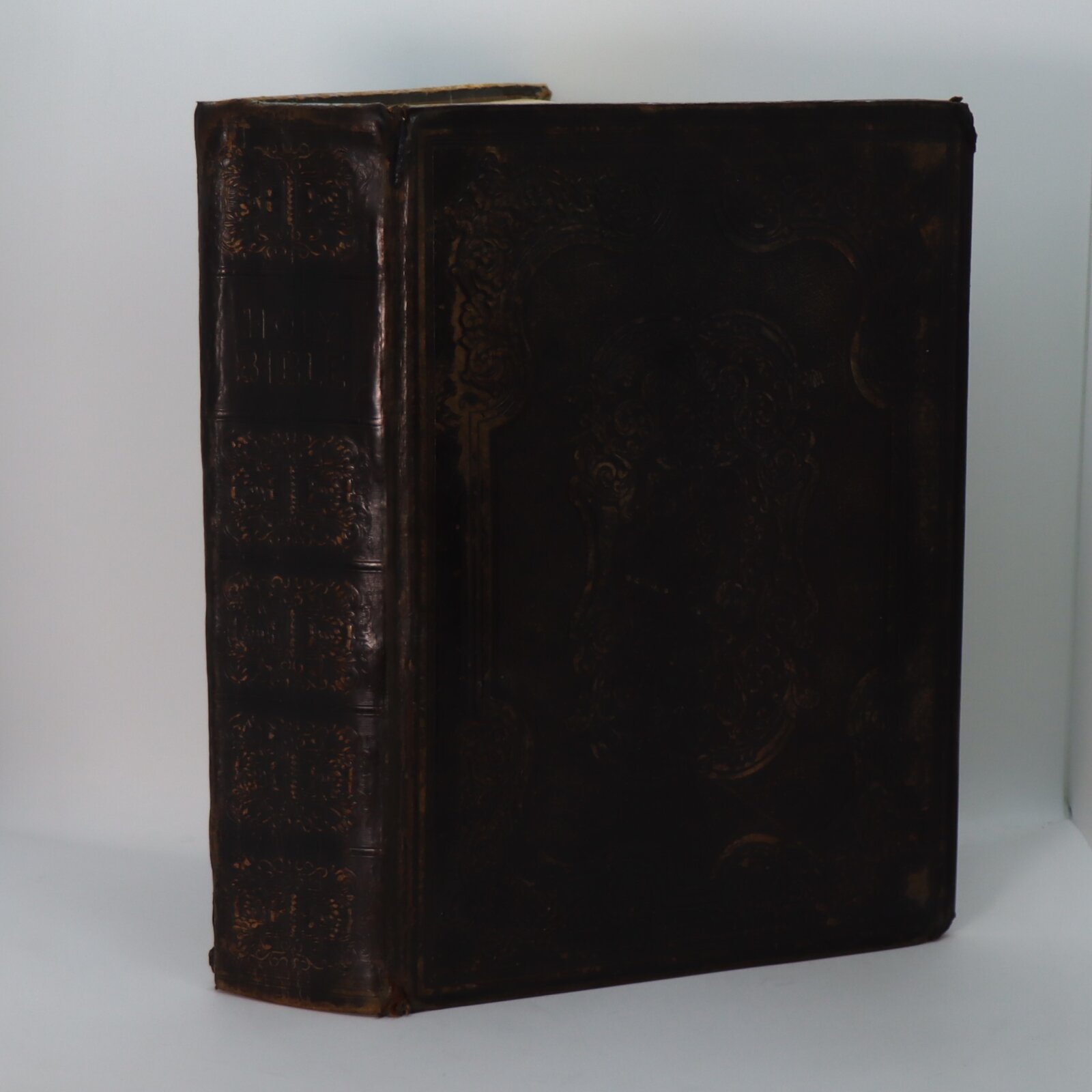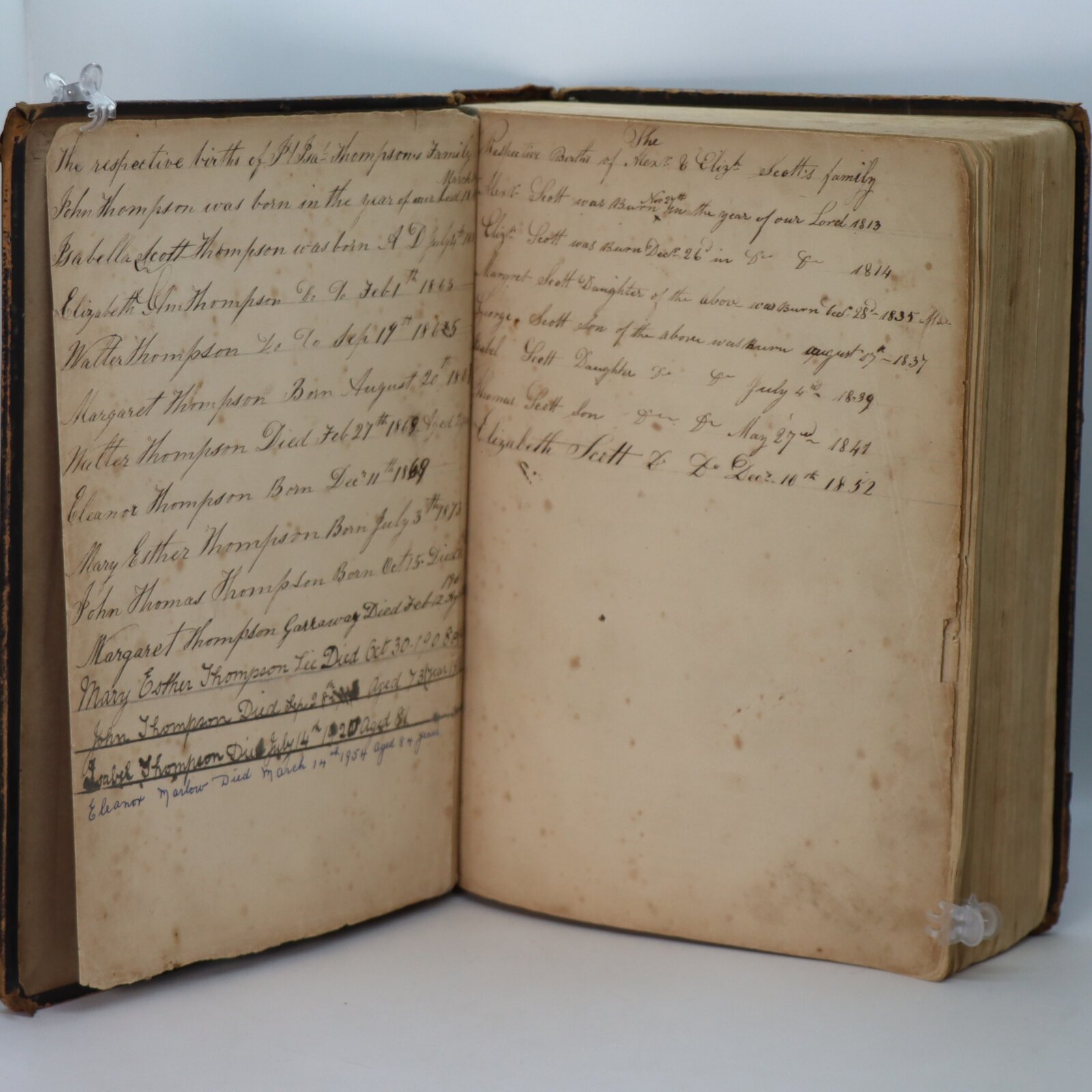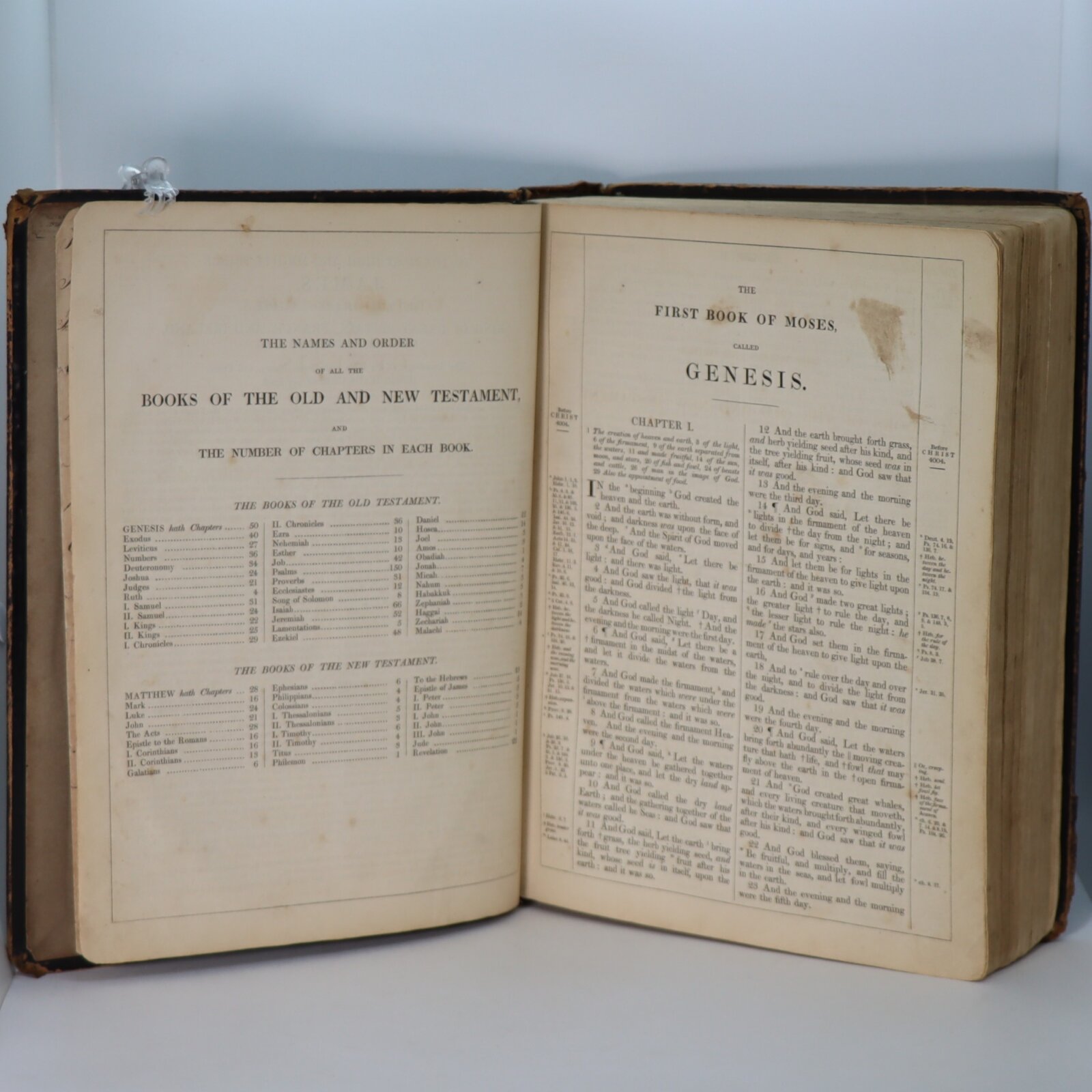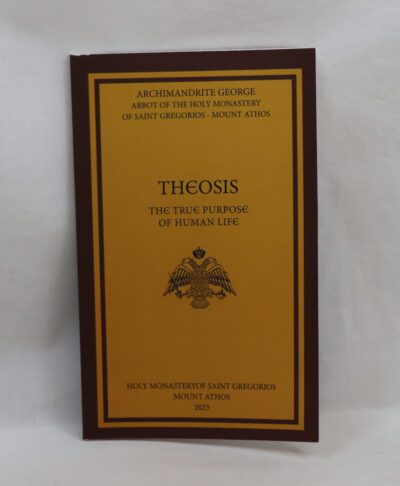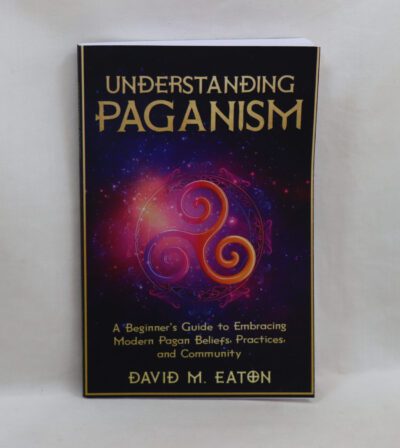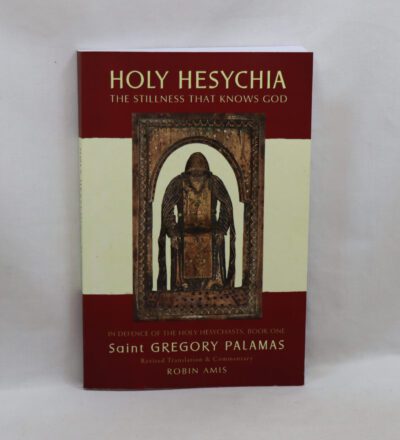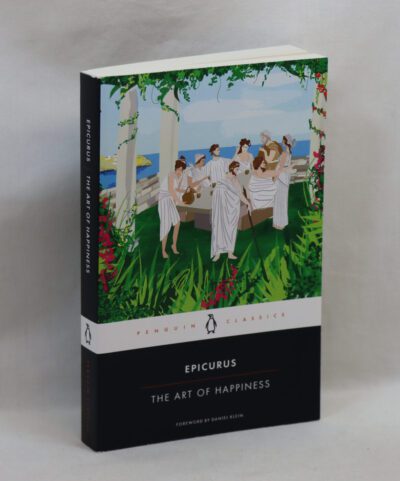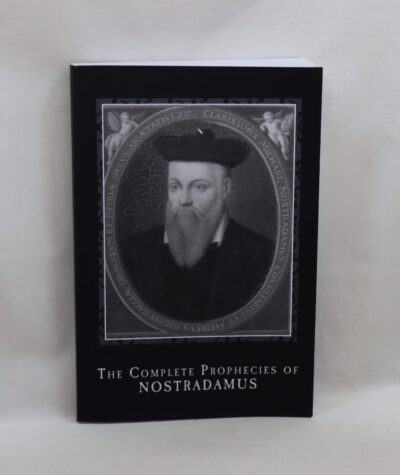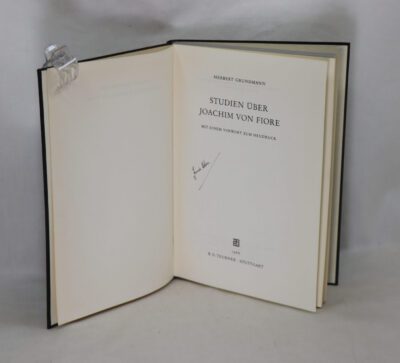The Holy Bible. 1838.
Printed: 1838
Publisher: British & Foreign Bible Society.
| Dimensions | 21 × 28 × 7 cm |
|---|---|
| Language |
Language: English
Size (cminches): 21 x 28 x 7
Condition: Very good (See explanation of ratings)
Item information
Description
Black embossed pattern leather binding. Embossed title “Holy Bible” on the spine.
RETURNED TO VENDOR
F.B.A. provides an in-depth photographic presentation of this item to stimulate your feeling and touch. More traditional book descriptions are immediately available
A truly lovely copy
The British and Foreign Bible Society, often known in England and Wales as simply the Bible Society, is a non-denominational Christian Bible society with charity status whose purpose is to make the Bible available throughout the world.
The Society was formed on 7 March 1804 by a group of people including William Wilberforce and Thomas Charles to encourage the “wider circulation and use” of the Scriptures.
The British and Foreign Bible Society dates back to 1804 when a group of Christians, associated with the Religious Tract Society, sought to address the problem of a lack of affordable Bibles in Welsh for Welsh-speaking Christians. Many young girls had walked long distances to Thomas Charles to get copies of the Bible. Later the story was told of one of them – a young girl called Mary Jones who walked over 20 miles to get a Bible in Bala, Gwynedd.
BFBS was not the first Bible Society in the world. The first organisation in Britain to be called “The Bible Society” was founded in 1779: it still exists and is called the Naval & Military Bible Society.
The first BFBS translation project was the Gospel of John into Mohawk for Canada in 1804. In the British Isles BFBS reprinted Bibles in Welsh, Scots Gaelic and Manx Gaelic first produced by SPCK. The first Romani translation was the Gospel of Luke into the Caló language of Iberia.
A report in the 13 November 1824 edition of the Buffalo Emporium and General Advertiser (NY), stated that the BFBS “since its establishment, has distributed 1,723,251 Bibles, and 2,529,114 Testaments—making a total of 4,252,365.”
From the early days, the Society sought to be ecumenical and non-sectarian. The Controversy in 1825–26 about the Apocrypha and the Metrical Psalms resulted in the secession of the Glasgow and Edinburgh Bible Societies, which later formed what is now the Scottish Bible Society. This and another similar 1831 controversy about Unitarians holding significant Society offices resulted in a minority separating to form the Trinitarian Bible Society.
The Bible Society extended its work to England, India, Europe and beyond. Protestant communities in many European countries (such as Croatia and Albania) date back to the work of nineteenth century BFBS Bible salesmen. Auxiliary branches were set up all over the world, which later became Bible Societies in their own right, and today operate in co-operation as part of the United Bible Societies. The Bible Society is a non-denominational Christian network which works to translate, revise, print, and distribute affordable Bibles in England and Wales.
A newspaper article in the 15 March 1879 edition of The Gazette (Montreal), noted that the total circulation by the BFBS “has been 82,000,000…during the last seventy-five years” (since 1804).
During World War One Bible Society distributed more than nine million copies of Scripture, in over 80 languages, to combatants and prisoners of war on all sides of the war. Bible Society managed this despite immense challenges – supply shortages, rising paper costs, paper rationing, submarine blockades and the sinking of merchant shipping.
Even greater than these physical difficulties was the emotional toll – former colleagues suddenly found themselves fighting on opposing sides. Bible salesmen throughout Europe were conscripted or volunteered into their respective armies. The Bible Society responded to the challenge. They printed New Testaments bound in khaki, stamped with a cross, for distribution via the Red Cross among sick and wounded soldiers, sailors, and prisoners of war.
On average between 6–7,000 volumes were sent out every working day for fighting men, the sick and wounded, the prisoners of war, exiles, and refugees. That’s over four copies distributed each minute, day and night, for the duration of the war.
Translation work never stopped – between August 1914 and November 1918, Bible Society printed Scriptures in 34 new languages and dialects. This meant on average there was one new version every seven weeks during the whole period of war.
For many years the headquarters of the society was in London; in 1972 its address was 146, Queen Victoria Street, E.C.4. By 1972 it had published or distributed whole Bibles or parts of the Bible in 1,431 languages. At that time, it was distributing 173 million copies each year.
Condition notes
Want to know more about this item?
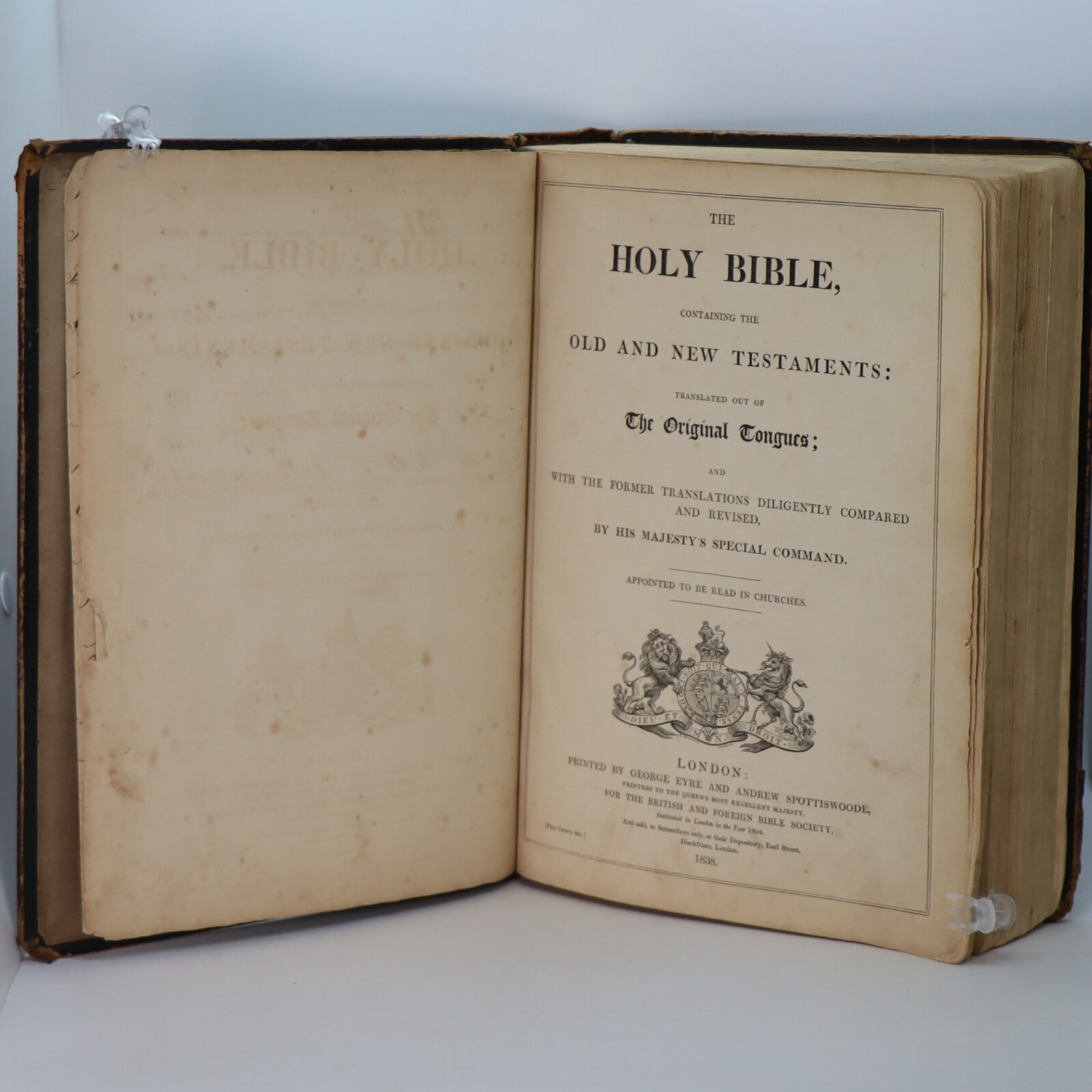
Related products
Share this Page with a friend

